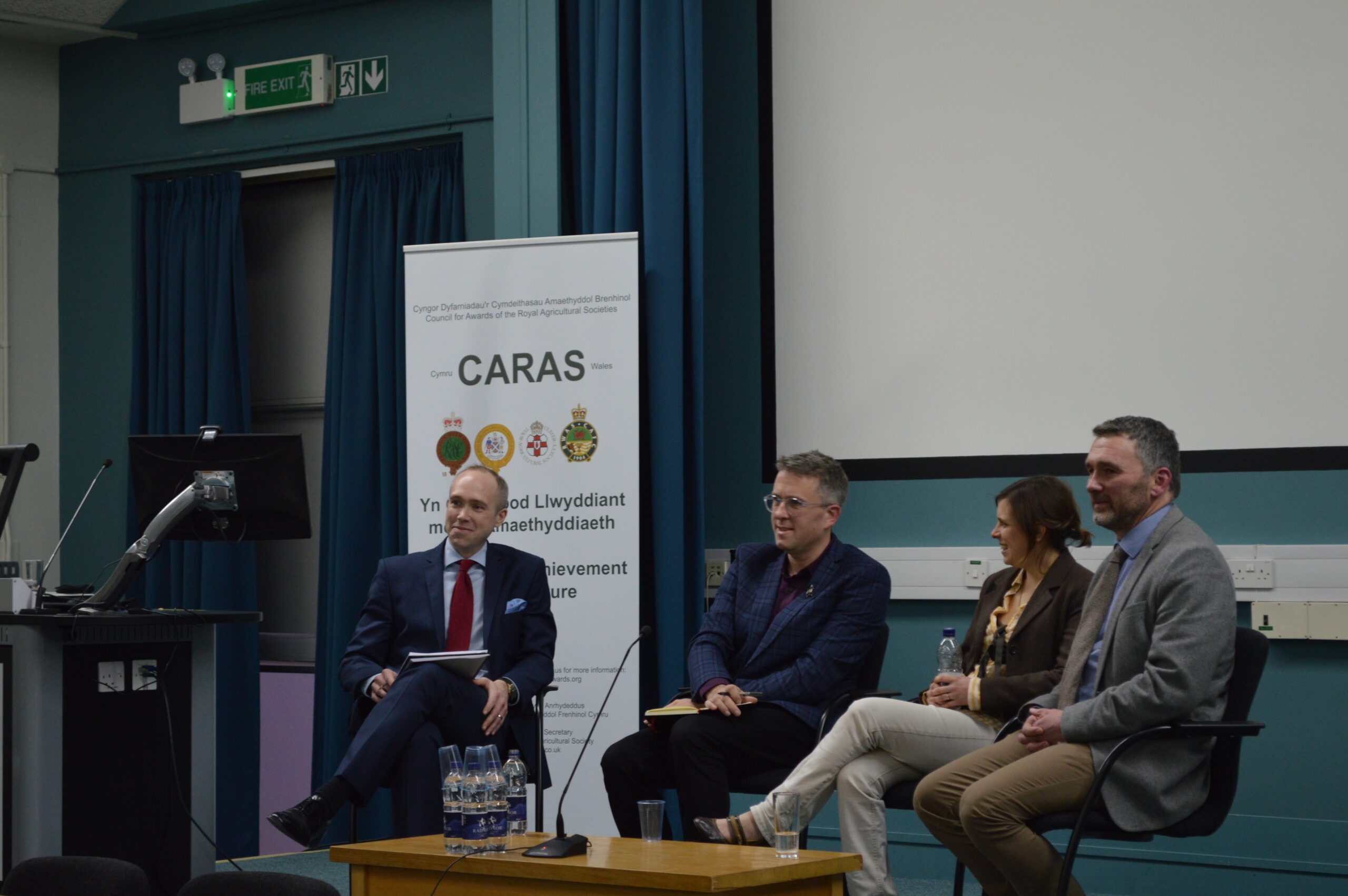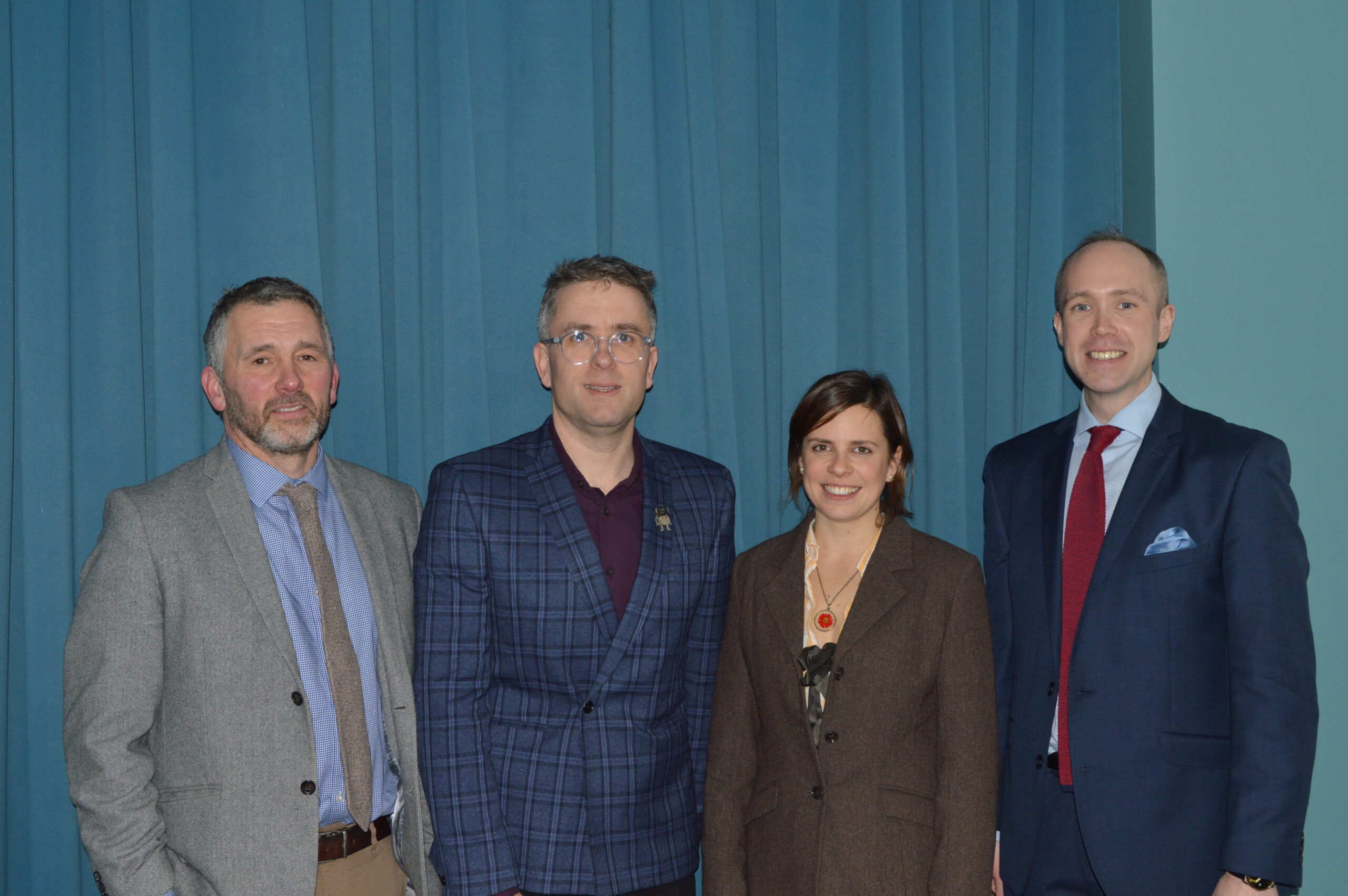
Farming should take control of the narrative in terms of its ‘very good story’, a conference of Wales’s leading farmers has heard. And since modern agriculture is a data driven industry, the evidence is there to be collated and used. Farmers need to operate as change makers.
The annual conference of the Welsh Council for Awards of Royal Agricultural Societies, CARAS Cymru, was held at IBERS, Aberystwyth, and addressed the theme, A Farming Industry Fit for the Future. The opportunities and challenges presented by data and technology emerged as the central topic.
First generation beef and sheep farmer and Farmers Union of Wales Policy Officer, Teleri Fielden, called on farmers to critique their farm data. Her own analysis on the tenanted farm she runs with husband Ned at Beddgelert in Gwynedd, had shown they can challenge the negative narrative around climate change, agriculture and livestock farming. They had wanted a farming system that would address those issues, that they could stand behind and be proud of.
She said: “What other product do people buy where you can say that if you buy this product and eat it, or support it, you create this sort of landscape. There’s not many that can do that.
“I think this is something we can really stand proudly behind as Welsh farmers and it’s quite an easy win. The plants set seeds and they flower and it’s just part of our system. It’s just an instant Win Win. You bring people in, they walk through the farm and the go, Oh I get it now.
“The stats are there, but I think what we need to be much better at as an industry is being able to critique them, critique ourselves and then to stand behind the data we can produce, the results we can produce and then be able to say, actually this is what we can do and here’s the data.”
Technology and data can also play an important role in reaching out to schoolchildren and to give depth to the farming message, according to Edward Morgan of Castell Howell Foods. As Group Corporate and Social Responsibility Manager, he stressed the importance of collaboration between business, unions, schools, academia and stakeholders.
He told the conference of the importance of being change makers and said the big question is how to positively influence what people put on their plates. His mission is to deliver positive, evidence based messages, to quantify why a particular food item is the best. It was Castell Howell’s responsibility to deliver messages, along with the one thousand pallets of food they deliver each day, not such an easy task in the food service sector.
Edward said: “I think it’s about time we pushed back with some positive messages which go beyond just provenance. There’s got to be more depth to it.”
He explained how, working with the catering manager at City Hall Cardiff, they put a QR code on the menu for the Nuffield Farming Conference Gala Dinner. It led to farmers discussing the different ingredients: “The meat was single sourced from one of our suppliers in Pendoylan. We had had a carbon audit on the farm and so what we could say with confidence to the delegates that evening was that the beef on the menu, the carbon emissions from that farm were 26% less than the UK average and so that’s a nice positive. And 50% of their carbon was sequestered back in and that’s a big talking point on carbon emissions, environmental impact. We identified a good farmer and a good family, so one positive message there.”
And he added that there was no better place than in schools to influence the next generation, to get positive messages through. He shared videos of work with Gower school children, taking them out on farm and gauging their reaction.

(Left to right) Edward Morgan, Group Corporate and Social Responsibility Manager for Castell Howell Foods, Thomas Allison, dairy engineer and technical specialist, Teleri Fielden, beef and sheep farmer and Farmers Union of Wales Policy Officer and Aled Rhys Jones, Chief Executive of the Royal Welsh Agricultural Society
Dairy engineer and technical specialist, Thomas Allison, called for a better understanding of the role of technology on the farm particularly with regard to the spares required for tomorrow’s farming equipment. He explained how a US farmer client had been unable to forward purchase the spares he needed to store on site for the robot milking operation. He bought a 3D printer and, over a few days, his son printed their own spare parts costing five dollars per spare part, compared to 100 dollars for the genuine part and although they only lasted half as long they could be changed pro-actively avoiding any breakdowns.
Thomas said: “I think that’s a really elegant and practical farmer solution, just with a slightly different set of skills and tools. We need better understanding of those manufacturing today’s technologies and their capabilities to evolve and adapt.
“At times, we will be expected to develop our own solutions and, key to this, we need to establish a culture of curiosity and imagination, traits I would argue that have been actively discouraged on most farms and rural businesses. Deployed well, emerging tools and systems have the power to change how we live and work in the countryside and how our communities evolve.
“By our actions and investments now, we are the architects of tomorrow. In a post Brexit, post Covid world we must seek technologies and develop core strategies that benefit us all.”
Aled Rhys Jones, Chief Executive of the Royal Welsh Agricultural Society who provide the secretariat for CARAS Cymru, said: “As an industry we often say that we produce the highest quality food in the world and while we should be rightfully proud of what we do, we must remember the need to substantiate those claims.
“To me, that was one of the central messages from the conference, together with the need to use data to back up our positive farming story and taking a more proactive approach to own our narrative. It reminded me of a presentation I saw from a French marketing professor while I was on my Nuffield Farming Scholarship who said ‘the first story is always considered to be the truth, and anything that follows is considered to be a reaction to the truth’. Let’s make sure we get there first.”
